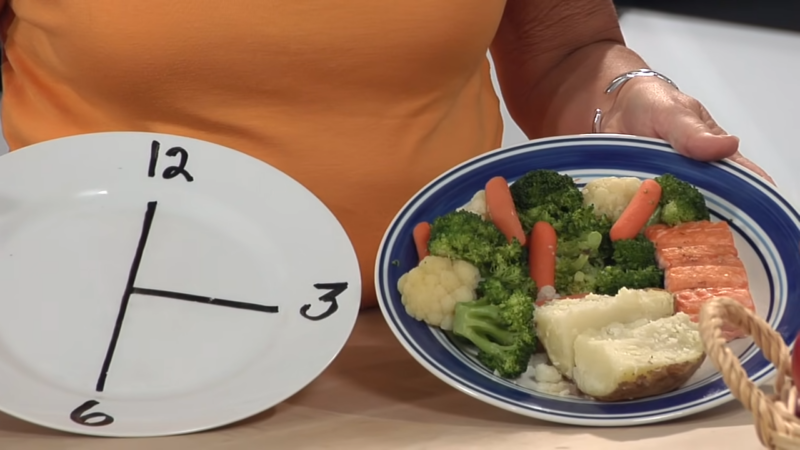As a specialist in gastroenterology, I have years of experience helping people deal with digestive disorders. Over the years, I’ve seen an increasing number of patients suffering from gastroparesis, and I truly understand how debilitating it can be.
Besides the conventional treatments I often recommend, many of my patients have inquired about natural alternatives. This got me to explore the world of natural cures.
And today, I’m thrilled to share some insights on these remedies, garnered from both my professional experience and extensive research.
The Basics of Gastroparesis

Gastroparesis, often termed delayed stomach emptying, primarily affects the nerves in the stomach. When these nerves are damaged, they prevent the muscles of the stomach from functioning properly.
Symptoms and Causes
The most common symptoms include nausea, vomiting undigested food, heartburn, and feeling full after only a few bites. The precise cause of gastroparesis is often unclear, though diabetes and certain surgeries can lead to it.
Why Go Natural?
Many people are leaning towards natural cures due to fewer side effects, affordability, and a holistic approach. Combining traditional and natural treatments might help some patients achieve better results.
1. Dietary Adjustments

Diet plays a crucial role in managing gastroparesis. Making certain dietary changes can alleviate some of the symptoms.
Smaller, Frequent Meals
Instead of the standard three meals, consider having six small meals. This approach reduces the amount of food in the stomach, making it easier to process and reducing symptoms.
Avoid Fatty and Fibrous Foods
Fatty foods delay emptying, and fibrous foods like oranges and broccoli can form bezoars (hardened food masses). Opt for easy-to-digest foods to help mitigate the condition.
2. Herbal Remedies
Several herbs have properties that can aid the digestive system. Here are a couple that have shown promise.
Ginger
Ginger is renowned for its anti-nausea properties. Drinking ginger tea or consuming ginger supplements can help with nausea and stimulate gastric emptying. Brew a cup of ginger tea by steeping 1-2 grams of ginger in boiling water for 10 minutes.
Drink this twice daily.
Acacia Fiber
Acacia fiber is a soluble fiber that can improve bowel regularity. It can also act as a prebiotic, promoting healthy gut bacteria. Begin with a small dose, about half a teaspoon, and mix it into a glass of water.
Gradually increase the dose over weeks as tolerated.
3. Acupuncture and Acupressure

These traditional Chinese medicine techniques can offer relief from gastroparesis symptoms.
Acupuncture
Acupuncture involves inserting thin needles at specific body points. It’s believed to stimulate the vagus nerve, which controls stomach muscles. Always consult a certified acupuncture specialist. Sessions typically last 20-30 minutes.
Acupressure
Acupressure uses pressure instead of needles to stimulate specific points. One can do this at home by applying pressure to the wrist area, which is linked to nausea relief. Locate the P6 point, which is about two and a half finger-widths from your wrist.
Press and massage this area for 3-5 minutes.
4. Essential Oils

Some essential oils might help alleviate gastroparesis symptoms, especially nausea and bloating.
Peppermint Oil
Peppermint oil can relax the gastric muscles and help with the passage of food and gases. Mix a couple of drops with a carrier oil and massage onto the abdomen. Alternatively, diffuse the oil in your living space.
Lavender Oil
Lavender has calming properties and can aid in reducing nausea. It also helps to relieve stress, a potential trigger for gastroparesis flare-ups. Diffuse the oil in your room or add a few drops to a warm bath.
5. Physical Activities

Certain physical exercises can promote better digestion and alleviate gastroparesis symptoms.
Walking
Walking, especially after meals, can stimulate digestion and speed up stomach emptying. Aim for a brisk 10-20 minute walk after meals. Ensure to wear comfortable footwear.
Yoga
Yoga poses, especially those that target the abdominal area, can improve digestion and reduce stress. Try poses like the Bridge Pose, Child’s Pose, and the Triangle Pose. Join a yoga class or follow online tutorials tailored for digestion.
Remember, always consult with a healthcare professional before starting any new treatment or remedy. This ensures that it’s safe and suitable for your specific condition and circumstances.
6. Probiotics and Enzymes
Boosting gut health can often provide relief from gastroparesis symptoms. Probiotics and enzymes play a significant role in this.
Probiotic Supplements
Probiotics are live bacteria and yeasts beneficial for your digestive system. They restore the natural balance of gut bacteria, which can aid in digestion. Look for high-quality probiotic supplements containing Lactobacillus and Bifidobacterium strains.
Start with a lower dose, and gradually increase as your body gets accustomed.
Digestive Enzymes
Digestive enzymes can help break down food, assisting with digestion. These can be particularly beneficial for people with gastroparesis, as the stomach’s natural enzymatic action might be compromised.
Consider enzyme supplements like lipase, protease, and amylase. Take them as directed, usually before or with meals.
7. Stress Management

Stress can be a major trigger for gastroparesis symptoms. Learning to manage and reduce stress can be of great help.
Meditation and Deep Breathing
Meditation and deep breathing exercises can lower stress levels, which might help in reducing gastroparesis flare-ups. Dedicate 10-15 minutes daily for meditation. Sit in a quiet place, close your eyes, and focus on your breathing.
Deep, controlled breaths can calm the mind.
Cognitive Behavioral Therapy (CBT)
CBT can help in altering negative thought patterns and behaviors that contribute to stress. This can indirectly aid in managing gastroparesis. Seek a trained CBT therapist. Regular sessions, whether in-person or online, can make a significant difference.
8. Castor Oil

Castor oil has traditionally been used to treat various digestive problems, including constipation and bloating.
External Application
Applying castor oil externally can potentially improve circulation and promote healing in the digestive area. Warm a little castor oil and gently massage onto the stomach. Cover with a cloth, and if possible, apply heat using a warm water bottle for about 20 minutes.
Oral Consumption
A small dose of castor oil can act as a laxative, aiding in bowel movement. However, it’s crucial to use it judiciously as it’s potent. If considering oral consumption, consult a doctor for the correct dosage. Never exceed the recommended amount.
9. Homeopathy
Homeopathic remedies, prepared from natural substances, can offer relief for some gastroparesis sufferers.
Nux Vomica
Nux Vomica is commonly prescribed for digestive complaints, especially when caused by overindulgence in food or drink. Opt for a potency like 30C and take as directed, usually 3-5 pellets under the tongue, 1-3 times a day.
Lycopodium
Lycopodium is beneficial for bloating, especially when the abdomen feels full after eating a small amount. Use in a potency similar to Nux Vomica, and follow the recommended dosing instructions.
FAQs
Can I rely solely on natural cures to treat gastroparesis?
While many natural cures can offer relief from gastroparesis symptoms, it’s essential to view them as complementary to traditional medical treatments. Always consult with a healthcare professional to determine the best treatment plan tailored to your needs.
How long does it usually take to see improvement using these remedies?
The time frame varies depending on the individual and the remedy. Some might experience relief within days, while others may need weeks or even months. It’s essential to be patient and consistent, but if a remedy doesn’t seem to work, consider exploring other options.
Are there any potential side effects or interactions to be aware of?
Yes, like all treatments, natural remedies can have side effects or interact with medications. For instance, ginger might interfere with blood-thinning drugs, and castor oil, when consumed in large amounts, can be toxic.
Always discuss with a healthcare provider before starting any new remedy.
Is it safe to combine multiple natural cures at once?
While many natural remedies are safe, combining them without guidance might lead to unforeseen interactions or amplified effects. It’s recommended to introduce one remedy at a time and monitor its effects before adding another.
How do I know if a particular remedy isn’t suitable for me?
Listen to your body. If you experience any adverse reactions, such as increased symptoms, rashes, or any other unexpected changes, discontinue the remedy and consult a professional. It’s always crucial to start with small doses and be observant.
Can I use these for children with gastroparesis?
While some remedies might be safe for children, their bodies can react differently than adults. Always consult with a pediatrician or a relevant healthcare professional before administering any treatment or remedy to children.
The Bottom Line
In my years of practice, I’ve seen firsthand how a blend of medical and natural remedies can make a world of difference for many. Our bodies are unique, and what works wonders for one might need adjustments for another.
It’s essential to remain patient, hopeful, and above all, proactive in seeking the best remedies tailored to your needs. I encourage everyone to take these suggestions as a starting point, consult professionals when needed, and always prioritize their well-being. Here’s to a healthier, happier you!

